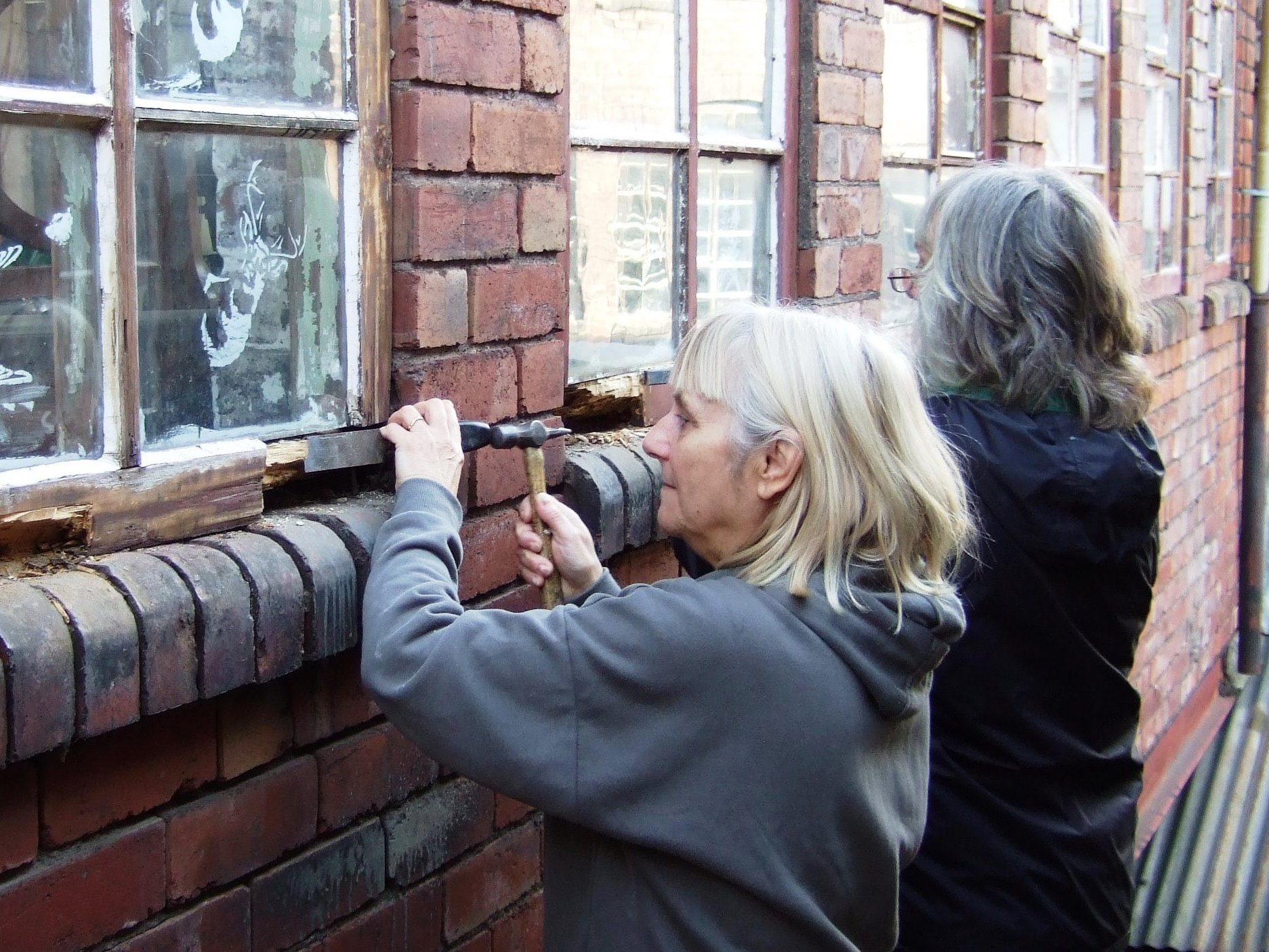“It’s magic, it really is”: Portland Works celebrates ten years of community ownership
Saved from redevelopment by the community, the unique and historic Sheffield complex continues to thrive as a hub of activity for all kinds of makers and doers.
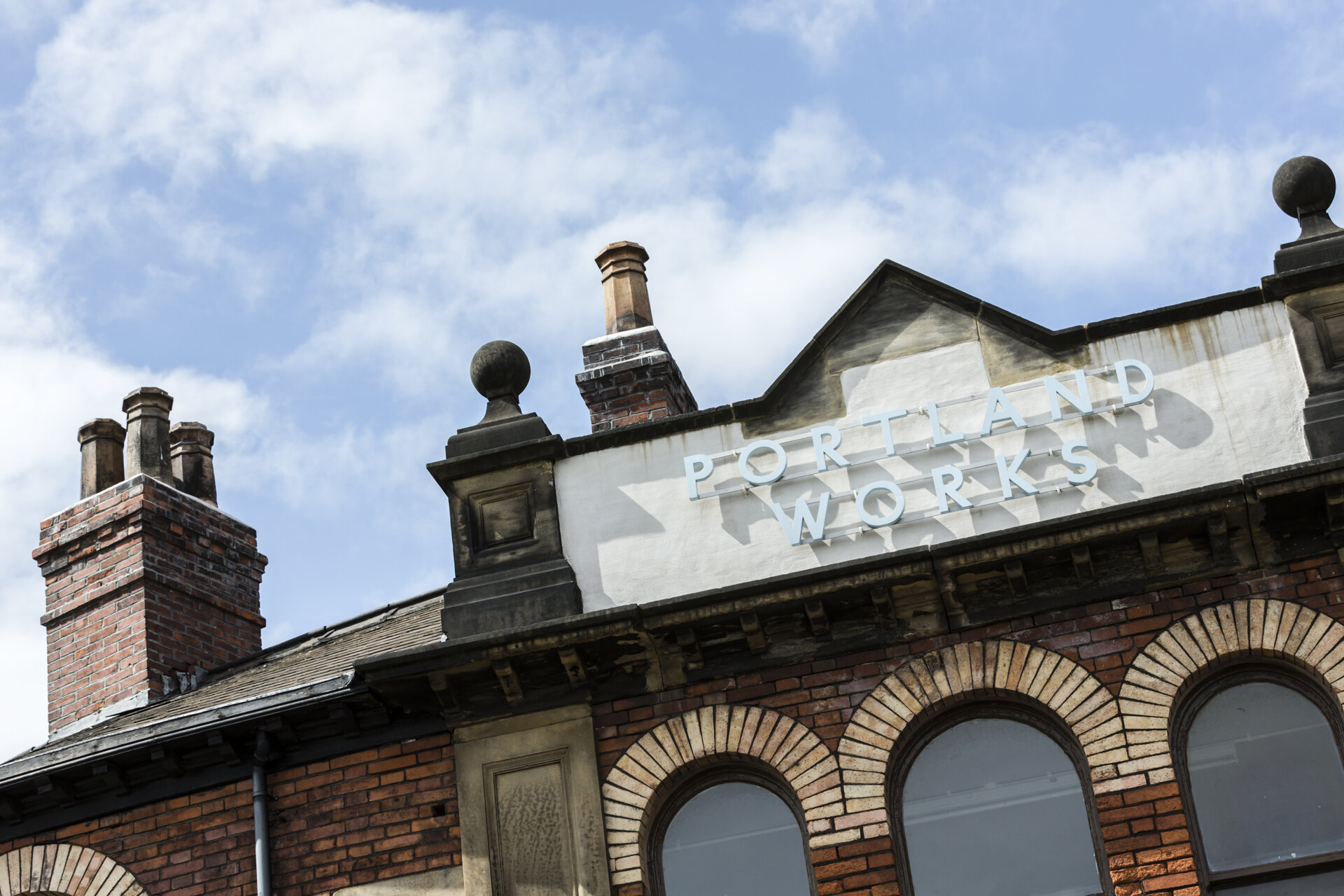
It took four years to save Portland Works.
In 2009, tenants got the shock news that the owner, a local businessman, was applying for planning permission with a view to selling the unique and historic 19th-century metalworking complex for development.
Local people, many associated with Sharrow Community Forum, started meeting with tenants to talk about what could be done to save the works. Almost immediately, the ambitious idea to buy it for the community emerged.
Derek Morton, volunteer and former Chair of Portland Works, tells me the community purchase was by no means a done deal. “I don’t think the owner ever took us particularly seriously! He thought, ‘They’ll kick up a bit of a stink, it’ll last a few months, and then it’ll all blow over and I’ll get my planning permission.’”
But once the campaign gathered enough steam, Derek says the owner accepted it as inevitable. “The owner just said, ‘Ok, you want to buy it. Come back to me when you’ve got some money.’”
Eventually, committed to making it work by hook or by crook, the group raised £250,000 through a community share issue, with almost 500 people investing in the purchase. By 2013, combined with loans and other support, they were finally able to buy the works for £390,000.
‘Dickensian’
The scale of the renovation and restoration project facing the new owners was colossal. Left more or less untouched for seven decades, since the Second World War, there were significant issues with the complex, but miraculously a professional survey concluded that it was, in essence, structurally sound.
Somewhere along the line, once the community had taken ownership, it was discovered that the iconic portico above the main entrance was sitting three inches away from the building, slowly falling forwards. Water damage was considerable because of the theft of lead from the huge roof. Significant structural support pillars were shifting visibly on a weekly basis. Floor joists were rotten, leaving whole floors unsupported. It was, as Derek puts it, “Dickensian”.
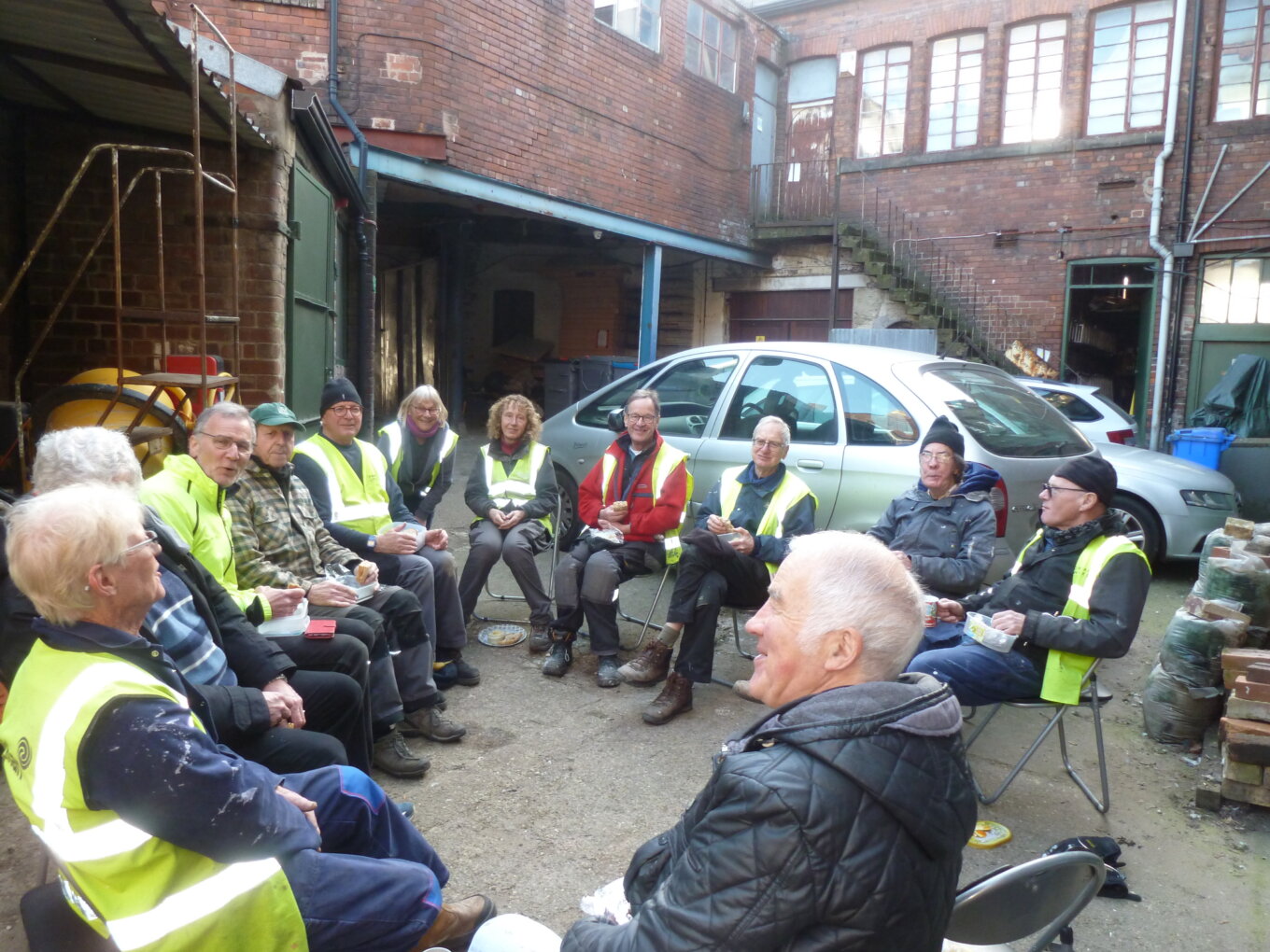
But with a small team of committed volunteers, alongside tenants with specialisms including metal and woodwork, the new Community Benefit Society set about securing the complex. The ‘Tuesday team’ of volunteers, many of them retirees, have worked continuously on the complex for ten years, achieving what Derek calls “a unique renovation”. He estimates that there may be another ten years of work ahead, and beyond that maintenance.
After many thousands of collective hours spent, more than half of the tenant spaces have been renovated and the extensive roof has been almost completely replaced – all while keeping the original character of the buildings, one of the requirements of Portland Works’ Grade II* listing.
Derek is rightly very proud of this achievement. “Every time I’ve gone through that archway since 2013, I’ve smiled. It’s magic, it really is.”
Julia Udall, former Director of Portland Works and former Community Architecural Researcher at Sharrow Comunity Forum, told me that saving Portland Works was part of a wider effort to “change the proposed planning designation for the John Street Triangle, which was proposed to be housing, to industry and business.” The community share approach, she says, served two key purposes – to ensure the complex was protected and rents kept low through an “asset lock”, and to build buy-in locally.
“It created a more formal community around the building, where many peoples’ vision, skills and care was valued. During the campaign, hundreds of people helped out – repairing the building, giving time to host tours, producing exhibitions, making fundraising CDs from the Works’ bands. We worked hard to understand the needs of the tenants and their businesses – keeping the place affordable was key.”
Rusnorstain
Although the city has been known as a centre for metalwork for hundreds of years, much of Sheffield’s history and mythology is tied up with the invention of stainless steel in the early 20th century, a discovery Portland Works played a part in.
In a collaboration between metallurgist Harry Brearley and works manager Ernest Stuart, Portland Works was the first place in the world to make stainless steel cutlery. Produced by R. F. Mosley & Co in 1914 under the brand name ‘Rusnorstain’, it was an innovation that quickly caught on, not least because the process was well suited to greater mechanisation, which brought down the cost.
Some of the present-day tenants are working with original machinery and tools that have been at the works since it was built almost 150 years ago, including a 19th-century forge used by toolmaker Andy Cole.
The next 150 years
But this isn’t just a story about the past. Today, there are more than 30 tenants at Portland Works – businesses, sole traders, makers and tinkerers of all kinds. Like many repurposed and reimagined spaces in the city, and in true Sheffield spirit, the tenants value having a place they can get their heads down and get on with it. What ‘it’ is varies hugely across the site. At present, Portland Works houses everything from traditional metal, leather and woodwork to rehearsal spaces, artist studios and a distillery.
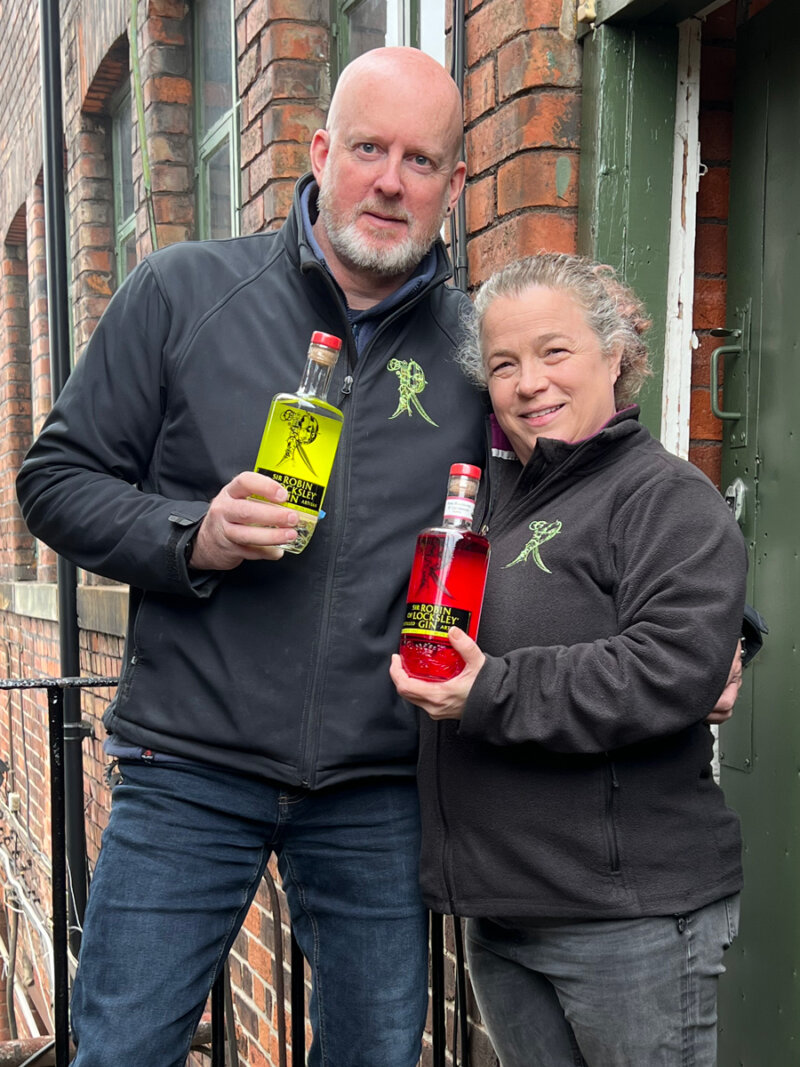
Starting in humble beginnings – the attic of co-founder John Cherry’s parents’ house – Locksley Distilling now makes one of the most popular gins in the city from its base at Portland Works.
Initially taking on a single unit at a very low rent, which John says was open to the elements, full of pigeons and showing all the “idiosyncrasies of a Victorian building”, they now operate from multiple spaces within Portland Works, shipping out tens of thousands of bottles of gin and liqueur every year.
Cynthia King, who founded the distillery with John, tells me the low-cost space has allowed them to take the business where they wanted to take it, without doing anything purely to cover their costs. To meet rent costs elsewhere, she says, “we’d have to change our business model.”
And while access and accessibility are always a challenge – I meet Cynthia and John at the top of a narrow, winding set of time-worn stone steps – the abundance of metal, wood and leather workers at Portland Works also means they can keep production of tools and accessories within the complex.
Half the world away (but only a few metres in distance) is Sheffield Hackspace, a community collaborating on projects involving 3D printing, robotics, laser cutting, single-board computers like the Raspberry Pi and just about everything in between.
“Compared to all the other businesses in here, we’re a little bit different,” admits Steve Toms, one of the founders of the not-for-profit members group, which makes space for the sharing of skills, knowledge and tools. Before it moved to Portland Works, the hackspace started life at Access Space in the former AVEC Building, near the Rutland Arms.
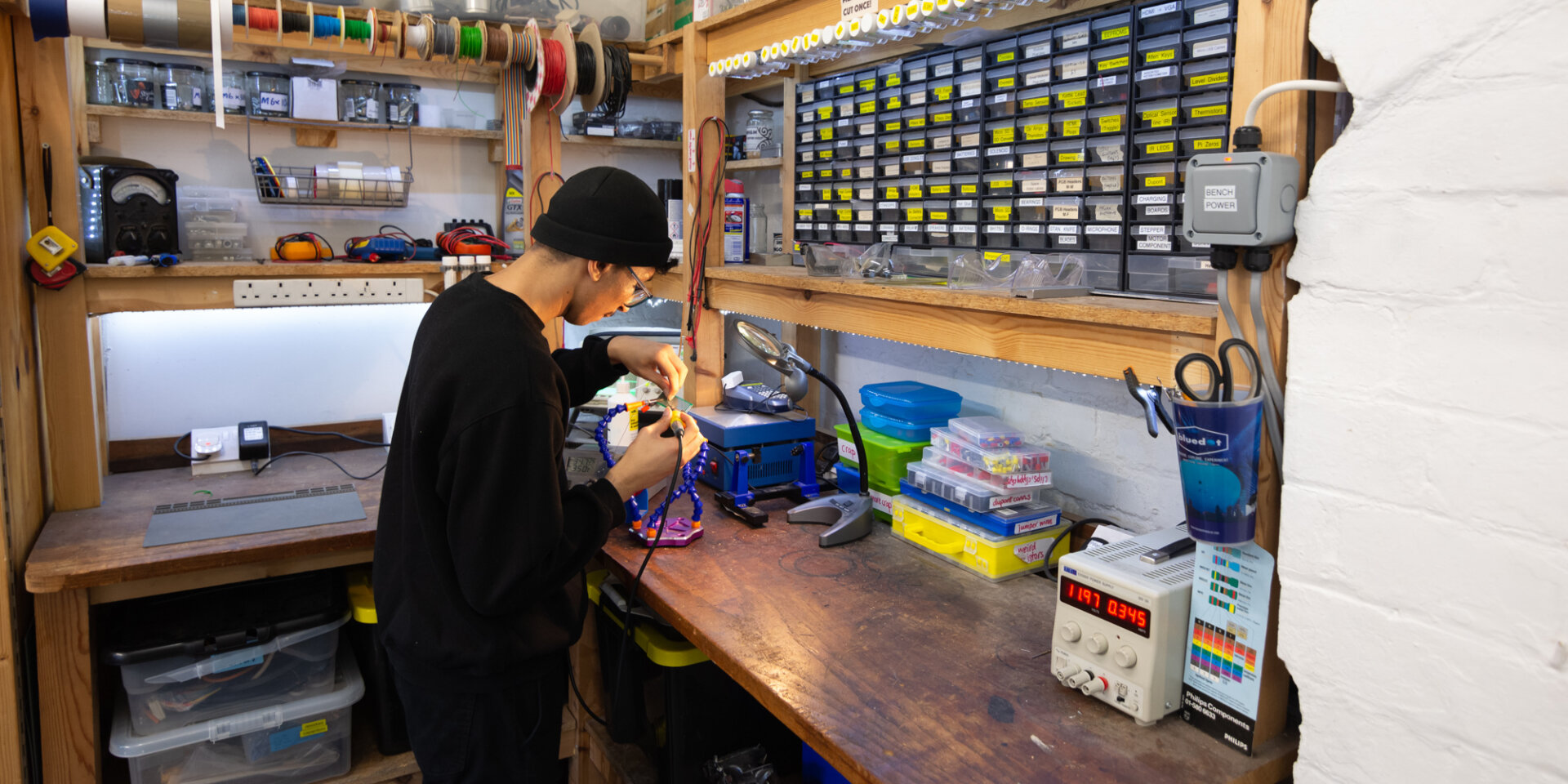
Like Locksley, for the hackers the low cost of rental space was an initial motivating factor, but once they were at the works, more benefits emerged.
“One of the things that’s kept us here is the community,” Steve says. The ability to walk out into the courtyard and find a helping hand from someone with useful skills is invaluable. That social, collaborative, cross-fertilising energy is something that clearly feeds the work of the hackers.
My own story, and the story of this magazine, is entwined with Portland Works too. Playing in bands in the late noughties, I was in and out of dingy, smoky rehearsal spaces at the works without a clue about the history of the complex, long before the community purchase. One of my bands recorded our first ‘proper’ EP in what is now the artist space at the works. The half-memory of parties and late night get-togethers in those rooms is still sloshing around somewhere at the back of my brain. When it rained, water ran down the walls.
Portland Works has also been home to Opus, the company that publishes Now Then, since 2014. For years we produced a monthly print magazine from our unit there, as well as launching, running and developing lots of the workstreams happening in the wider company. Almost a decade later we’re still based at Portland Works, proud to be part of such a successful community-owned venture and a unique part of Sheffield history.
Derek says the tenants at the works are “now more varied than ever.” And long may that continue, because the importance of having an affordable space in Sheffield to get your head down and get on with it – whatever ‘it’ is – can never be overstated.

